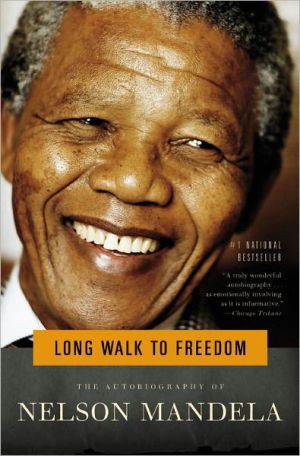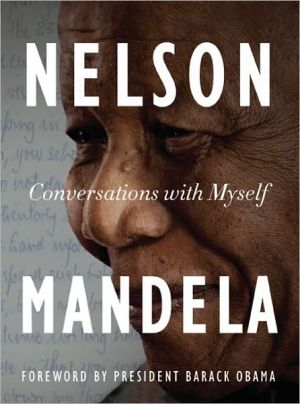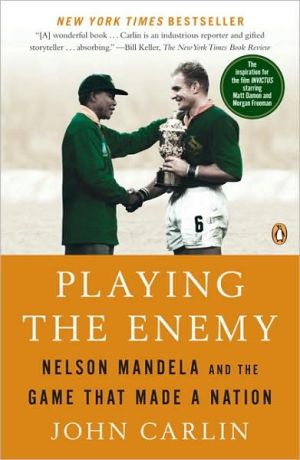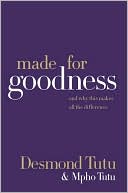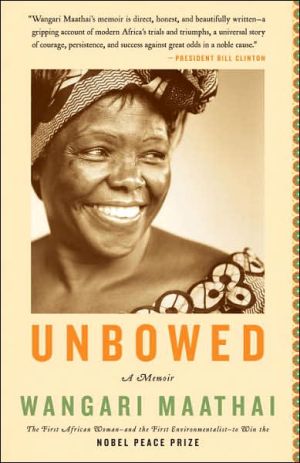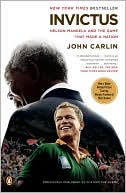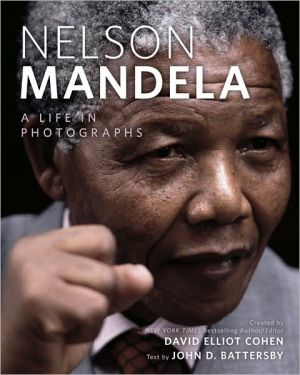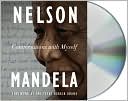Long Walk to Freedom: The Autobiography of Nelson Mandela
Nelson Mandela is one of the great moral and political leaders of our time: an international hero whose lifelong dedication to the fight against racial oppression in South Africa won him the Nobel Peace Prize and the presidency of his country. Since his triumphant release in 1990 from more than a quarter-century of imprisonment, Mandela has been at the center of the most compelling and inspiring political drama in the world. As president of the African National Congress and head of South...
Search in google:
Nelson Mandela is one of the great moral and political leaders of our time: an international hero whose lifelong dedication to the fight against racial oppression in South Africa won him the Nobel Peace Prize and the presidency of his country. Since his triumphant release in 1990 from more than a quarter-century of imprisonment, Mandela has been at the center of the most compelling and inspiring political drama in the world. As president of the African National Congress and head of South Africa's anti-apartheid movement, he was instrumental in moving the nation toward multiracial government and majority rule. He is revered everywhere as a vital force in the fight for human rights and racial equality. The foster son of a Thembu chief, Mandela was raised in the traditional, tribal culture of his ancestors, but at an early age learned the modern, inescapable reality of what came to be called apartheid, one of the most powerful and effective systems of oppression ever conceived. In classically elegant and engrossing prose, he tells of his early years as an impoverished student and law clerk in Johannesburg, of his slow political awakening, and of his pivotal role in the rebirth of a stagnant ANC and the formation of its Youth League in the 1950s. He describes the struggle to reconcile his political activity with his devotion to his family, the anguished breakup of his first marriage, and the painful separations from his children. He brings vividly to life the escalating political warfare in the fifties between the ANC and the government, culminating in his dramatic escapades as an underground leader and the notorious Rivonia Trial of 1964, at which he was sentenced to life imprisonment. He recounts the surprisingly eventful twenty-seven years in prison and the complex, delicate negotiations that led both to his freedom and to the beginning of the end of apartheid. Publishers Weekly This fluid memoir matches South African President Mandela's stately grace with wise reflection on his life and the freedom struggle that defined it. Mandela began this book in 1975, during his 27-year imprisonment. He has fleshed out a sweeping story that begins in the rural Transkei in 1918 and moves beyond, especially to Johannesburg, where he became politically active as one of only a few black African lawyers. As an African National Congress leader, this military novice helped launch an armed struggle against the intransigent apartheid government, then eloquently explained his political convictions when on trial in 1964 for sabotage. Perhaps the most powerful passages involve the Robben Island prison, where political prisoners formed a ``university'' and Mandela read books like War and Peace, resisting embitterment and finding decency even in callous Afrikaner jailers. Moved to a mainland prison in 1985, Mandela, unable to consult with exiled ANC leaders, initiated intricate negotiations with the government; the story fascinates. This book-perhaps out of diplomacy and haste-covers the period since Mandela's 1990 release with less nuance and candor than other recent accounts; still his belief in repairing his country inspires. Mandela's family life has involved much sadness: he was not permitted a contact visit with wife Winnie for 21 years, was separated from his two young children and split with Winnie after his release, although he supported her during her 1991 conviction for kidnapping (a sentence she is appealing). ``In South Africa,'' he notes, ``a man who tried to fulfill his duty to his people was inevitably ripped from his family and his home.'' Photos not seen by PW. (Dec.)
\ Publishers Weekly\ - Publisher's Weekly\ This fluid memoir matches South African President Mandela's stately grace with wise reflection on his life and the freedom struggle that defined it. Mandela began this book in 1975, during his 27-year imprisonment. He has fleshed out a sweeping story that begins in the rural Transkei in 1918 and moves beyond, especially to Johannesburg, where he became politically active as one of only a few black African lawyers. As an African National Congress leader, this military novice helped launch an armed struggle against the intransigent apartheid government, then eloquently explained his political convictions when on trial in 1964 for sabotage. Perhaps the most powerful passages involve the Robben Island prison, where political prisoners formed a ``university'' and Mandela read books like War and Peace, resisting embitterment and finding decency even in callous Afrikaner jailers. Moved to a mainland prison in 1985, Mandela, unable to consult with exiled ANC leaders, initiated intricate negotiations with the government; the story fascinates. This book-perhaps out of diplomacy and haste-covers the period since Mandela's 1990 release with less nuance and candor than other recent accounts; still his belief in repairing his country inspires. Mandela's family life has involved much sadness: he was not permitted a contact visit with wife Winnie for 21 years, was separated from his two young children and split with Winnie after his release, although he supported her during her 1991 conviction for kidnapping a sentence she is appealing. ``In South Africa,'' he notes, ``a man who tried to fulfill his duty to his people was inevitably ripped from his family and his home.'' Photos not seen by PW. Dec.\ \ \ \ \ Library JournalThis is an articulate, moving account of Mandela's life from his "country childhood" following his birth on July 18, 1918 to his inauguration as president of South Africa on May 10, 1994. Mandela traces the growth of his understanding of the oppression of the blacks of South Africa; his conviction that there was no alternative to armed struggle; his developing belief that all people, black and white, must be free for true freedom; and the effect that his commitment to overthrowing apartheid had on his family, who "paid a terrible price." Over a third of Mandela's memoir tells of his 27 years in prison, an account that could stand alone as a prison narrative. He ends his book with the conclusion that his "long walk" for freedom has just begun: "For to be free is not merely to cast off one's chains, but to live in a way that respects and enhances the freedom of others." Highly recommended for all collections. [Previewed in Prepub Alert, LJ 4/1/94.]-Maidel Cason, Univ. of Delaware Lib., Newark\ \ \ From Barnes & NobleThe riveting memoirs of one of the great moral & political figures of our time, an international hero whose accomplishments won him the 1993 Nobel Peace Prize. Mandela shares the epic story of his life--its struggles, setbacks, & ultimate triumph. B&W photos.\ \
